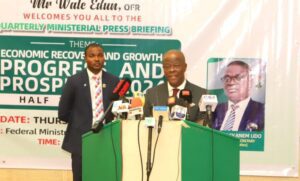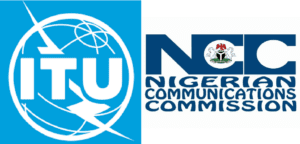


UBA, AGF sign MoU facilitating $100m loans to SMEs across Africa
The African Guarantee Fund (AGF) and the United Bank for Africa (UBA) on Monday signed a partnership that ensures that UBA provides $100 million in new loans to Small and Medium Enterprises (SME) and business owners across the 20 African countries where the bank has presence in Africa.
The AGF under this agreement will support and guarantee SMEs with $50 million Portfolio Guarantee as well as facilitate extensive capacity development for the Bank’s teeming customers who run small businesses across the continent, paying special attention to women-led businesses and green finance projects.
UBA’s Group Managing Director, Oliver Alawuba, who spoke during the partnership signing ceremony between both institutions at the UBA Head Office in Lagos, on Monday, said that as Africa’s Global Bank, UBA remains committed towards supporting SMEs in Africa, especially to women founded and managed businesses, given its robust network, which is spread across the 20 countries in Africa and major global financial capitals.
He said, “This guarantee will serve as a catalyst for the bank’s intervention for SME business, women-led and environment friendly businesses, enabling us to further extend our reach and impact. Additionally, the extensive capacity development initiatives planned for our SME customers across 20 African countries align with our vision to empower businesses, drive innovation, and foster sustainable growth.
“I am particularly excited about our focus on advancing the AfCFTA initiative, reaffirming UBA’s $6 billion commitment to SMEs across Africa. This initiative, announced in September last year, demonstrates our dedication to supporting the economic integration of our continent,” he further said.
“Moreover, our commitment to promoting gender equality in our business is reflected in our collaboration with the Affirmative Finance Action for Women (AFAWA) protocol. Through this we will provide loans to women-owned SMEs at more concessional rates, with customer friendly collateral terms, aiming to bridge the significant financing gap faced by women in Africa, amounting to $42 billion,” Alawuba noted.
In the same vein, capacity development platforms are to be extended for free or at highly discounted rates while the partners will engage with governments across Africa to create and activate business environments that are more women friendly. It will also expand the Bank’s Green Finance propositions across Africa.
Speaking at the signing ceremony, the Group CEO of African Guarantee Fund, Jules Ngankam, said the partnership between two pan-African institutions who are both at the forefront of catalysing growth and development of SMEs will significantly drive economic growth across the continent.
“Small and medium enterprises despite being the backbone of all African economies – they account for 90 percent of the private sector and 60 percent of all jobs – are perceived as risky and therefore have limited access to financing. Through this guarantee facility and the technical capacity development grant support, we will de-risk SMEs with a priority on those that are owned or led by women and those that are within the green sector.”
This partnership is sequel to the announcement made by United Bank for Africa (UBA) Plc, and Africa Continental Free Trade Area (AfCFTA) Secretariat in September 2024 which will help the Bank drive its $6Bn commitment to SMEs across Africa under the AfCFTA initiative//ends
United Bank for Africa is one of the largest employers in the financial sector on the African continent, with 25,000 employees group wide and serving over 35 million customers globally. Operating in 20 African countries and in the United Kingdom, the United States of America, France and the United Arab Emirates, UBA provides retail, commercial and institutional banking services, leading financial inclusion and implementing cutting edge technology.
African Guarantee Fund (AGF) is a specialised guarantee provider whose mission is to facilitate economic development and poverty reduction in Africa. To achieve this, AGF increases access to finance for Small and Medium-sized Enterprises (SMEs) across key economic sectors through an array of guarantee products and capacity development assistance. Since inception, AGF has unlocked more than USD 3.5 billion in SME financing, through partnerships with 200 partner financial institutions across 40 African countries.
AGF is backed by the following shareholders and sponsors: The Government of Denmark through the Danish International Development Agency (DANIDA), the Government of Spain through the Spanish Agency for International Cooperation (AECID), the African Development Bank (AfDB), French Development Agency (AFD), Nordic Development Fund (NDF), Investment Fund for Developing Countries (IFU), German Development Bank (KfW), French Agency for Private Sector (PROPARCO), West African Development Bank (BOAD), Global Affairs Canada (GAC), USAID’s West Africa Trade & Investment Hub (WATIH), TechnoServe and Norwegian Agency for Development Cooperation (Norad). African Guarantee Fund is rated AA- by Fitch Ratings.
AFAWA is a pan-African initiative of the African Development Bank Group that aims to close the $42 billion financing gap for women in Africa through comprehensive support. AFAWA aims to unlock $5 billion in financing for women-owned and women-led small and medium enterprises by 2026. AFAWA is supported by the African Development Bank’s partners and donors, the G7 countries, the Netherlands and Sweden, and the Women’s Enterprise Finance Initiative (We-Fi). Through AFAWA, the African Development Bank has approved $1,5 billion of investment for women entrepreneurs in 32 countries, channeled through 96 financial institutions.



